Feminist Angels
Feminist Angels
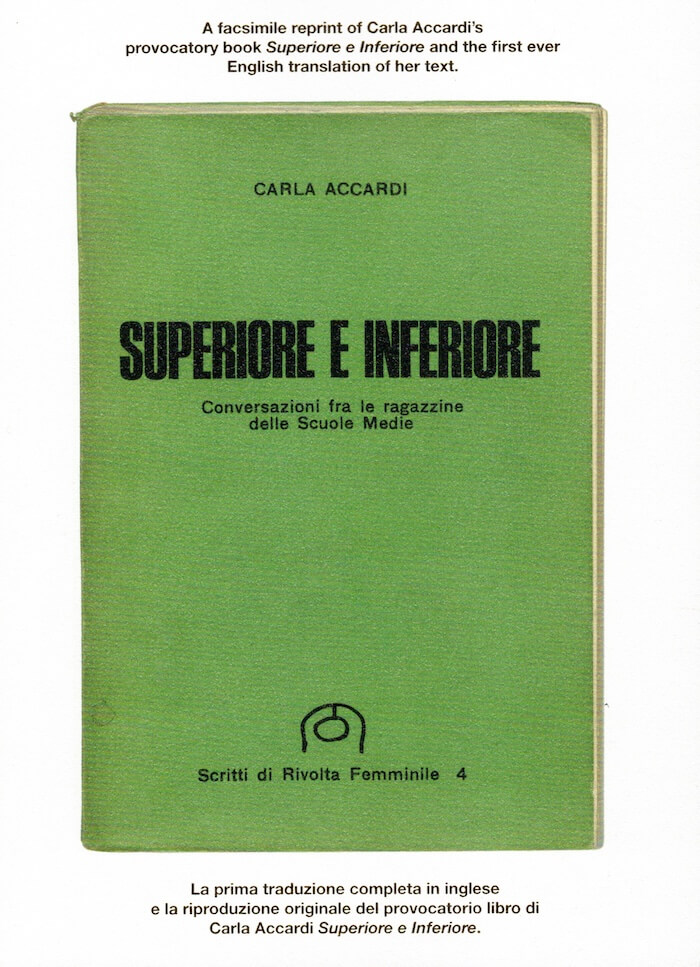
Superior and Inferior
Superior and Inferior presents a facsimile reprint of Italian abstract artist and feminist Carla Accardi's provocatory publication Superiore e Inferiore and the first ever English translation of the full text.
"In this book, I have bought together the transcripts of dialogues I recorded on tape in three girls' classes from the first, second and third year of a state middle school. For having proposed this unauthorised activity, I was dismissed from teaching in the light of a formal complaint". – Carla Accardi introducing her book Superiore e Inferiore, 1972.
First published in 1972 by Carla Accardi, the book Superiore e Inferiore features discussions among girls at a middle school—all between 10 and 13—about society's discriminatory behaviour towards women. They also commented the Manifesto of the revolutionary feminist group Rivolta Femminile—collectively written by Accardi, art critic and feminist activist Carla Lonzi, and Elvira Banotti—which first appeared posted on city walls in Rome in July 1970. For having discussed sex-related issues with pupils, Accardi was fired and permanently suspended from teaching. (Her letter of dismissal issued by the Italian Ministry of Education forms part of the introduction to the book.) Along the lines of Pasolini's Comizi d'Amore (Love Meetings), Accardi's own voice is secondary in the book, giving way to the thoughts, narratives, opinions, and debates expressed among girls on the role of women and girls, family conflicts and intimate relations.
Carla Accardi (1924–2014) was an Italian abstract painter associated with the Arte Informale and Arte Povera movements, and a founding member of the Italian art groups Forma (1947) and Continuità (1961). She experimented with different forms of art, such as black and white painting and Sicofoil. During the late 1970s, she became part of the feminist movement with critic Carla Lonzi. Together, they founded Rivolta femminile in 1970, one of Italy's first feminist groups. Accardi's first solo exhibition in the United States was in 2001 at MoMA PS1.
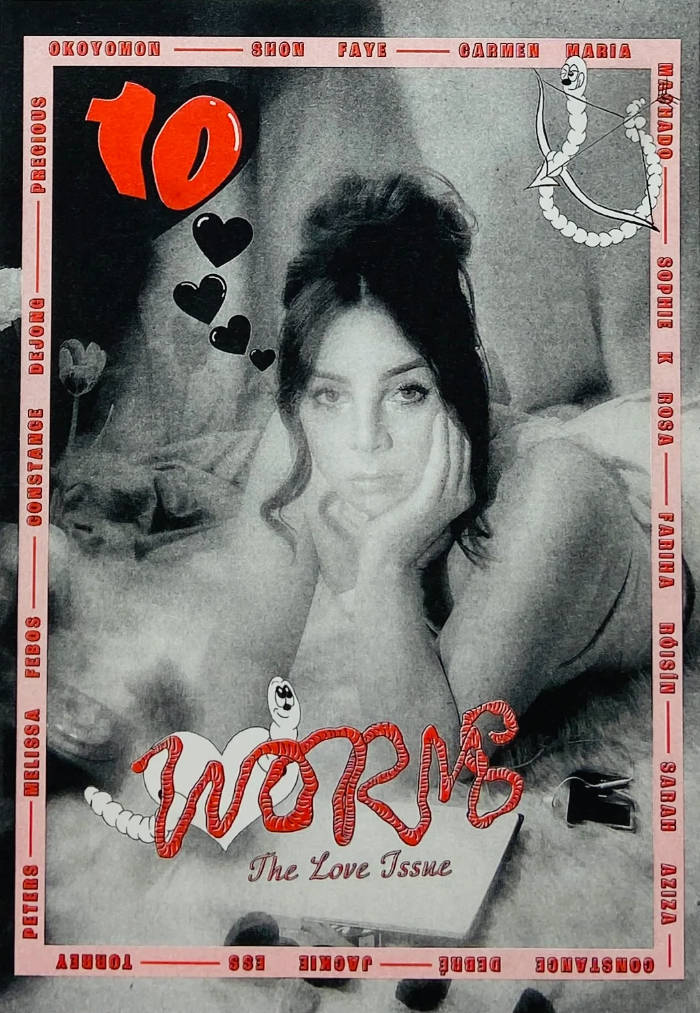
Worms #10: The Love Issue
Clem Macleod, Caitlin McLoughlin and 2 more
This latest issue of Worms invites readers into a bold and tender exploration of love in all its messy, political, and transformative guises.
Set against the backdrop of state-sanctioned transphobia in the UK and US, ongoing genocide in Gaza, and a litany of global injustices that see us staggering under the weight of collective and personal upheaval, this issue reckons with thinking and writing about love in a time of crisis. How do we take seriously the seemingly frivolous demands of love, devotion, beauty—in all their myriad and sometimes painful forms—when basic needs and rights are stripped away.
Featuring voices from at home and overseas including Shon Faye, Torrey Peters, Melissa Febos, Constance DeJong, Sarah Aziza, Precious Okoyomon, Carmen Maria Machado and Constance Debré, as well as contributions from rising stars in experimental literature, we ask: How can we continue to love someone who refuses to change? Is writing about sex still strange – or have we done and seen it all? What do you do if you fall in love with your sperm donor?
From the resilience and fierce creativity of trans writers, the challenges and ethics of telling love stories that are not our own, to the guts and gristle of motherhood, pet love, age-gap relationships and getting off on poetry, Worms 10 is a testament to the power of writing, and of love, as acts of resistance, reclamation and truth.
FEATURING: Shon Faye, Jackie Ess, Precious Okoyomon, Constance Debré, Melissa Febos, Torrey Peters, Carmen Maria Machado, Sarah Aziza, Constance DeJong, Sophie K Rosa
CONTRIBUTORS: Caitlin Hall, Zara Joan Miller, Devki Panchmatia, Lu Rose Cunningham, Gabrielle Sicam, Aimée Ballinger, Mimi Howard, Enya Ettershank, Sufjan Bile, MK McGrath, Amie Corry, Dizzy Zaba, 2ly (Molly Cranston, Safiye Gray, Hanako Emden, Sophie Florian, Johanna Maierski), Jemima Skala, Fariha Róisín, Summer Moraes
PHOTOGRAPHERS: Minu, Dozie Kanu, Jen Dessinger, Karla Monroe, Sophie Williams, Ellen Stewar
ILLUSTRATORS: Rifke Sadleir, Chloe Sheppard, Charlotte Pelissier, Leomi Sadler
EDITORS: Caitlin McLoughlin, P. Eldridge, Clem MacLeod, Arcadia Molinas
DESIGN: Caitlin McLoughlin

Theory, A Sunday
Louky Bersianik, Nicole Brossard and 4 more
Collectively authored by Louky Bersianik, Nicole Brossard, France Théoret, Gail Scott, Louise Cotnoir, Louise Dupré, Lisa Robertson, and Rachel Levitsky. Twenty-five years after its first French language publication, Theory, A Sunday (2013), a collaborative feminist poetics text, marks the first in Belladonna’s new Germinal Texts series. Written through Sunday meetings in Montreal, this volume gathers six women’s theoretical feminist texts, with a new introduction by Lisa Robertson and afterword by Gail Scott and Rachel Levitsky. Translators of this text include Erica Weitzman, Luise von Flotow, Popahna Brandes, and Nicole Peyrafitte.
Germinal Texts trace feminist avant-garde histories and the poetic lineages they produce. Focused on authors and texts that provide generative grounds for other writers and their work, Germinal Texts gesture to networks of affiliation, whether explicit or subterranean; to kinships and inheritances; to the unfolding of a text through its readership; and to always provisional origins without endings. Germinal Texts are works that gather dense histories and, for this reason, the series is designed to hold a space for critical discussion, with contextualizing front and back matter that launches new conversations.
Louky Bersianik (1930-2011) is the author of twelve books of poetry and prose. Essayist, novelist and poet, her much admired novel L’Eugélionne is considered Québec’s first feminist novel (translated by Howard Scott as The Eugélionne (1996). Her novel Permafrost, 1937-38, won the Governor General’s award in 1997. Louky was born in Montréal and studied at Université de Montréal, the Sorbonne, and Centre d’études de radio et de television.
Nicole Brossard was born in Montréal. Poet, novelist and essayist, she has published more than forty books. Her work has been influential on a generation of poets and feminists. Her work has been widely acknowledged and translated in many languages. Her most recent book, translated into English by Erin Mouré and Robert Majzels, is WHITE PIANO (Coach House Books, 2013). Nicole Brossard lives in Montréal.
Louise Cotnoir has published seventeen books of poetry, fiction and drama. She was twice nominated for the Governor General’s Award for Poetry, most recently for Les îles (2005). Dis-moi que j’imagine was a finalist for the prestigious Académie des lettres du Québec poetry prize (1996). She has participated in numerous conferences on women and writing, notably “Women and Words” (Vancouver, 1983), “L’écriture des femmes au Québec” (Sweden, 1992), “L’originalité de l’écriture au féminin au Québec” (New Jersey, 1995). She has contributed to or served on the editorial boards of Sorcières (Paris), Estuaire, Arcade, Tessera, Matrix, Moebius, Room of One’s Own, Ellipse, Trivia (USA), Silencíada Festada Palabra (Barcelona), El Ciervo (Barcelona) and Cahiers internationaux du symbolisme (Brussels). Her work has been translated into English, Spanish, Catalan, Finnish and Chinese. Her last collection of poetry, Les soeurs de, appeared with Éditions du Noroît (2011), with a stage adaptation in Ottawa (2012) and Montréal (2013). Les îles, translated by Oana Avasilichioaei, appeared as The Islands in 2011. She lives in Montréal.
Poet, novelist and essayist, Louise Dupré has published twenty books. Her work has received numerous awards and has been translated in various languages. She has collaborated with artists of visual arts, cinema, video and dance. Her play Tout comme elle was produced on stage and directed by Brigitte Haentjens in Montréal in 2006 and in Toronto in 2011, during the Luminato Festival. Plus haut que les flammes won the Governor General’s Award for poetry as well as the Grand Prix du Festival international de la poésie de Trois- Rivières in 2011. She is a member of the Académie des lettres du Québec and the Royal Society of Canada. She was professor of creative writing and women’s writing in Université du Québec à Montréal for twenty years.
Gail Scott’s fourth novel, THE OBITUARY (Nightboat Books, 2012), was a finalist for the 2011 Montréal Book of the Year (Grand prix du livre de Montréal). Scott’s other experimental novels include My Paris (Dalkey Archive), HEROINE (Talonbooks, 1999), and Main Brides. She has published collections of essays, stories, manifestos, and collaborations with Robert Glück et al BITING THE ERROR (Coach House Books, 2004), shortlisted for a Lambda award (2005). Scott’s translation of Michael Delisle’s Le Déasarroi du matelot was a finalist for the Canadian Governor General’s award in translation. The Canadian journal Open Letter devoted its autumn 2012 edition to Scott’s work. She lives, mostly, in Montréal and teaches Creative Writing at Université de Montréal.
France Théoret is a Montreal poet, novelist and essayist. She holds a doctorate in French studies from the University of Sherbrooke, and taught literary studies from 1968 to 1987. She was a member of the editorial board of the journal La Barre du jour from 1967 to 1969, and is the author of one of the monologues in the 1976 theatre piece La Nef des sorcières. In that same year she co-founded the feminist journal Les Têtes de pioche and in 1979, the cultural magazine Spirale, which she directed from 1981 to 1984. She has published over twenty books and been nominated for many prizes. Most of her work has been translated into English. Her poetry is available in Italian, Spanish, and Portuguese and has appeared in anthologies in Quebec and abroad. In 2012, she was awarded the Athanase-David Prix du Québec for her entire oeuvre. She lives in Montreal.
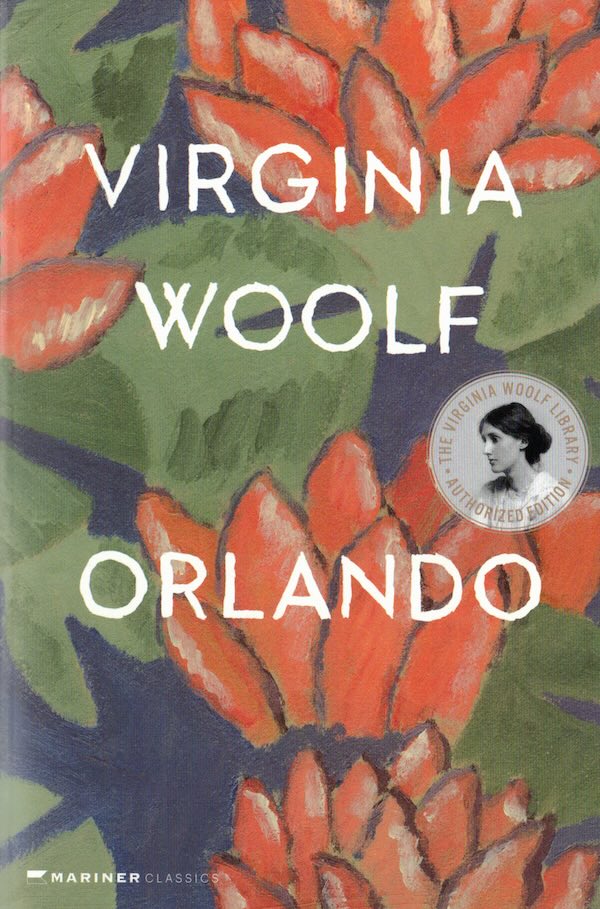
Orlando
"Come, come! I'm sick to death of this particular self. I want another."
Virginia Woolf described "Orlando" as "an escapade, half-laughing, half-serious; with great splashes of exaggeration, " but many think Woolf's escapade is one of the most wickedly imaginative and sharply observed considerations of androgyny that this century will see.
Orlando is, in fact, a character liberated from the restraints of time and sex. Born in the Elizabethan Age to wealth and position, he is a young male aristocrat at the beginning of the story - and a modern woman four centuries later. The hero-heroine sees monarchs come and go, hobnobs with great literary figures, and slips in and out of each new fashion. Woolf presents a brilliant pageant of history, society, and literature as well as subtle appreciation of the interplay between endings and beginnings, past and present, male and female.
Virginia Woolf(1882-1941) was one of the major literary figures of the twentieth century. An admired literary critic, she authored many essays, letters, journals, and short stories in addition to her groundbreaking novels, including Mrs. Dalloway, To The Lighthouse, and Orlando.
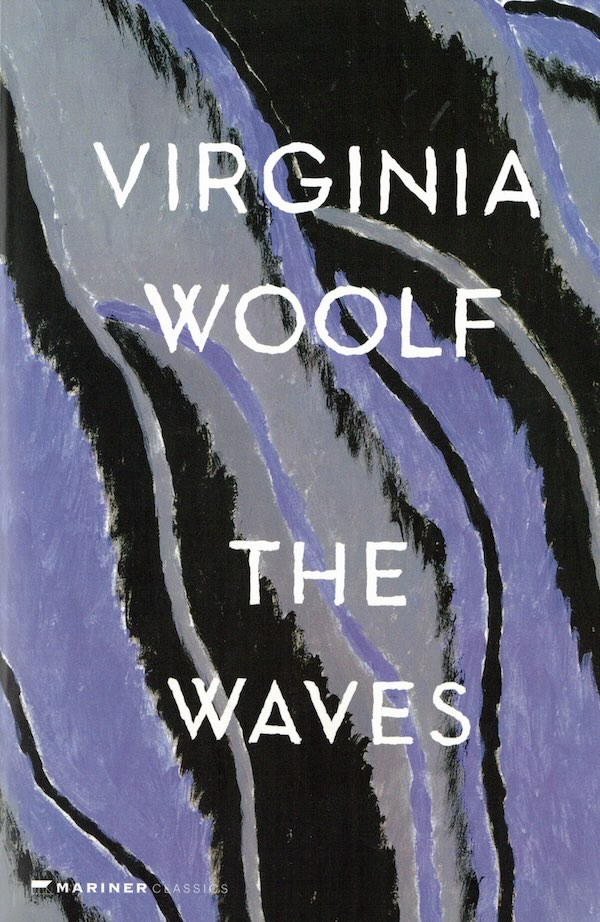
The Waves
"I am made and remade continually. Different people draw different words from me."
Innovative and deeply poetic, The Waves is often regarded as Virginia Woolf's masterpiece. It begins with six children—three boys and three girls—playing in a garden by the sea, and follows their lives as they grow up, experience friendship and love, and grapple with the death of their beloved friend Percival. Instead of describing their outward expressions of grief, Woolf draws her characters from the inside, revealing their inner lives: their aspirations, their triumphs and regrets, their awareness of unity and isolation.
Virginia Woolf (1882-1941) was one of the major literary figures of the twentieth century. An admired literary critic, she authored many essays, letters, journals, and short stories in addition to her groundbreaking novels, including Mrs. Dalloway, To The Lighthouse, and Orlando.
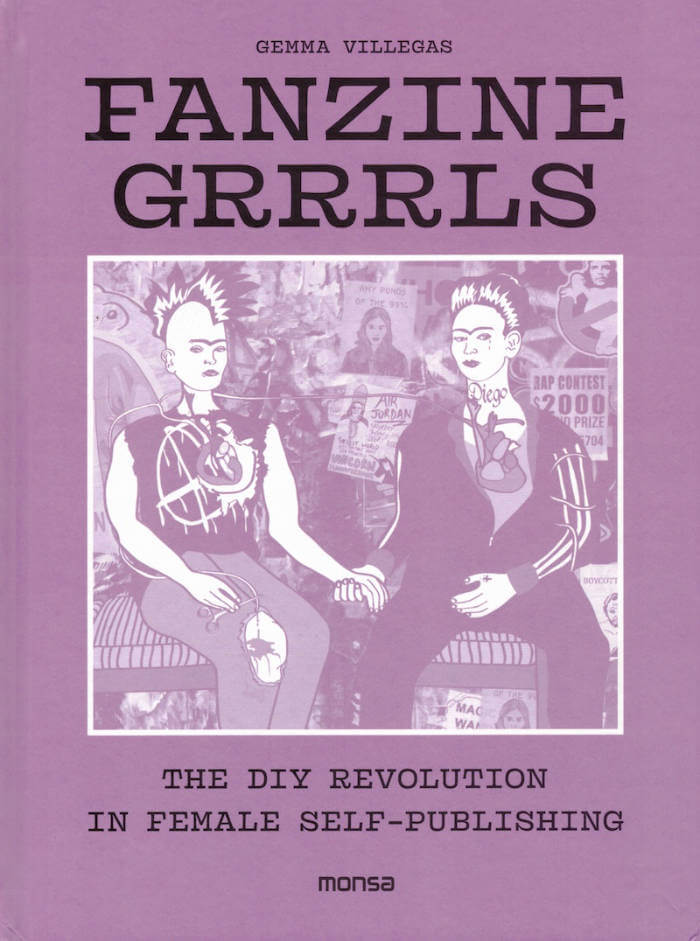
Fanzine Grrrls
Making a fanzine is an act of rebellion, even more so if it is published and produced by a woman. The grrrls of today use them to inspire countless young people around the world, to take control of their lives and to create their own culture. These homemade publications are a quick and cheap way to spread their ideas and dismantle the usual stereotypes. Traditionally hand-drawn, photocopied, and stapled together, the format of fanzines are now as diverse as their subject matter, with online platforms and social networks fast becoming the norm. The fanzine is more alive than ever!
Gemma Villegas runs her graphic design studio based from Barcelona. She works in close dialog with commissioners and collaborators on a broad range of projects, including visual identities, exhibitions, publications, and digital platforms, overseeing the creative process during all the phases of a project. Her work is characterized by a fresh and powerful visual language focused on detail with special attention to typography.

S.C.U.M. Maniifesto
An A6 pocket pamphlet edition of Valerie Solanas’ diatribe against men and the world they have made.
This limited edition has a misprint on the front cover.
In 1967 Valerie Solanas wrote an essay, both stringent and ironic – critiquing men, and the way the male-dominated scientific and academic world wrote about women. The Society for Cutting Up Men was her proposed solution. Deeply sincere and roguishly tongue-in-cheek, it is an essay worth reading, both for its insight into the mind of a person who had undergone and would undergo significant trauma in her life, and also inflict trauma on others.
Valerie Jean Solanas was born on April 9th, 1936. She’s best known for writing The SCUM Manifesto, and of course, attempting to murder an artist called Andy Warhol, in 1968. Solanas had an extremely troublesome childhood. Abused by her father and grandfather, she then had a volatile relationship with her mother and stepfather after her parents’ divorced. Solanas came out as a lesbian in the 1950s and relocated to Berkeley, California, where she wrote SCUM Manifesto, which urged women to “overthrow the government, eliminate the money system, institute complete automation and eliminate the male sex.

Survival Is a Promise: The Eternal Life of Audre Lorde
A bold, innovative biography that offers a new understanding of the life, work, and enduring impact of Audre Lorde.
We remember Audre Lorde as an iconic writer, a quotable teacher whose words and face grace T-shirts, nonprofit annual reports, and campus diversity center walls. But even those who are inspired by Lorde’s teachings on “the creative power of difference” may be missing something fundamental about her life and work, and what they can mean for us today.
Lorde’s understanding of survival was not simply about getting through to the other side of oppression or being resilient in the face of cancer. It was about the total stakes of what it means to be in relationship with a planet in transformation. Possibly the focus on Lorde’s quotable essays, to the neglect of her complex poems, has led us to ignore her deep engagement with the natural world, the planetary dynamics of geology, meteorology, and biology. For her, ecological images are not simply metaphors but rather literal guides to how to be of earth on earth, and how to survive―to live the ethics that a Black feminist lesbian warrior poetics demands.
In Survival Is a Promise , Alexis Pauline Gumbs, the first researcher to explore the full depths of Lorde’s manuscript archives, illuminates the eternal life of Lorde. Her life and work become more than a sound bite; they become a cosmic force, teaching us the grand contingency of life together on earth.

Le Soleil et l’Acier
Le Soleil et l’Acier est un recueil de textes assemblé par Laurianne Bixhain lors de clubs de lecture qui se sont tenus pendant sa résidence au Musée de l’imprimerie et de la carte à jouer de Grevenmacher (Luxembourg). Pour faire écho au travail de Monique Wittig, Roxanne Maillet a dessiné de nouvelles ligatures pour la Baskervvol, notamment une ligature « je ».

Fortune Teller
Sticky Fingers' Fortune Teller features wisdom from McKenzie Wark, Octavia E. Butler, Kate Zambreno, bell hooks, Clarice Lispector, Eileen Myles, Kathy Acker, Johanna Hedva, Lou Sullivan, Audre Lorde, June Jordan, and Anne Boyer.
A3, single colour risograph

Worms #8 'The Elements Issue'
In this special edition, double-cover issue of Worms, we bring you not one, but two cover stars. The indelible Tyson Yunkaporta and the iconic Anne Waldman adorn both sides of Worms 8 which can also be thought of as ‘The Elements Issue’. It was dreamt up in a dreary and grey August in London, while the rest of the world suffered through the hottest days on record. As we witnessed, and continue to witness, such climate catastrophe, we turned to the literature we love to help us understand, to challenge us, and to offer us some comfort.
The issue is split into four sections—earth, fire, air and water—but its roots and webs push beyond what we typically think of as ‘the natural’: tales from the kitchen from Rebecca May Johnson and Slutty Cheff, reflections on gardening and colonialism, writer's block and clogged pipes, how to blow up pipelines with Andreas Malm, grief and writing, recovery and nature with Octavia Bright, social mobility with Isabel Waidner, the wide range of issues raised by the underrepresentation of First Nations people in literature with Evelyn Araluen and much, much more.
We hope that this issue can be a flame of hope, inspiration, or something that simply sustains in such turbulent times.
Featuring
Tyson Yunkaporta, Isabel Waidner , Jamaica Kincaid, Melissa Broder , Evelyn Araluen, Bruce Pascoe, Octavia Bright, Nora Treatbaby , Nerea Calvillo , Anne Waldman , Alexis Pauline Gumbs , Léuli Eshrāghi, Madeline Cash , Andreas Malm, Rebecca May Johnson
Contributors
Stella Murphy , Ben Redhead, Phoenix Yemi, Sam Moore, Devils Claws, Pierce Eldridge, Manon Mikolaitis, Caitlin McLoughlin, Isabel MacCarthy, Elodie Saint-Louis , Nettle Grellier, Amelia Abraham, Ryan Pfluger, Rose Higham-Stainton , Emma Crabtree, Ignota, Lydia Luke, Chloe Sheppard , Clem MacLeod , Carolyne Loreé Teston , Emma Cohen, Olive Couri, Raheela Suleman , No Land , Jacqueline Ennis-Cole , Sufia Ikbal-Doucet, Rhett Hammerton, Zara Joan Miller , Kate Morgan , Bug Shepherd-Barron, Zoe Freilich , Slutty Cheff , Clemmie Bache , Violet Conroy , Sarah White , Jemima Skala , Stephanie Francis-Shanahan

After Sex
Who decides what happens after sex? The last decade has seen many significant changes to the laws governing women’s reproductive rights around the world, from liberalisation in Ireland to new restrictions in the USA. After Sex offers personal and political perspectives from the mid-20th century to the present day, setting feminist classics alongside contemporary accounts. These essays, short stories and poems trace the debates and tell the stories; together, they ask us to consider what reproductive justice might look like, and how it could reshape sex.
The writers pay special attention to people — both fictional and real — who have sought control over their sexual lives, and the joy, comedy, difficulties and disappointments that entails. But above all, After Sex testifies to the power of great writing to show us why that freedom is worth pursuing — without shame and without apology.
With contributions from:
Lauren Berlant, Joanna Biggs, Edna Bonhomme, Gwendolyn Brooks, Beverley Bryan, Stella Dadzie and Suzanne Scafe, Storm Cecile, Lucille Clifton, Rachel Connolly, T.L. Cowan, ’Jane Does’, Maggie Doherty, Nell Dunn, Andrea Dworkin, Anne Enright, Deborah Friedell, Tracy Fuad, Kristen Ghodsee, Vivian Gornick, Donna Haraway, bell hooks, Barbara Johnson, Jayne Kavanagh, Lisa Hallgarten and Angela Poulter, Jamaica Kincaid, Patricia Knight, R.O. Kwon, Ursula K. Le Guin, Natasha Lennard, Sophie Lewis, Audre Lorde, Amelia Loulli, Erin Maglaque, Holly Pester, Adrienne Rich, Denise Riley, Sally Rooney, Loretta J. Ross, Madeleine Schwartz, SisterSong, Sophie Smith, Annabel Sowemimo, Amia Srinivasan, Keeanga-Yamahtta Taylor, Judith Jarvis Thomson, Alice Walker and Bernard Williams.
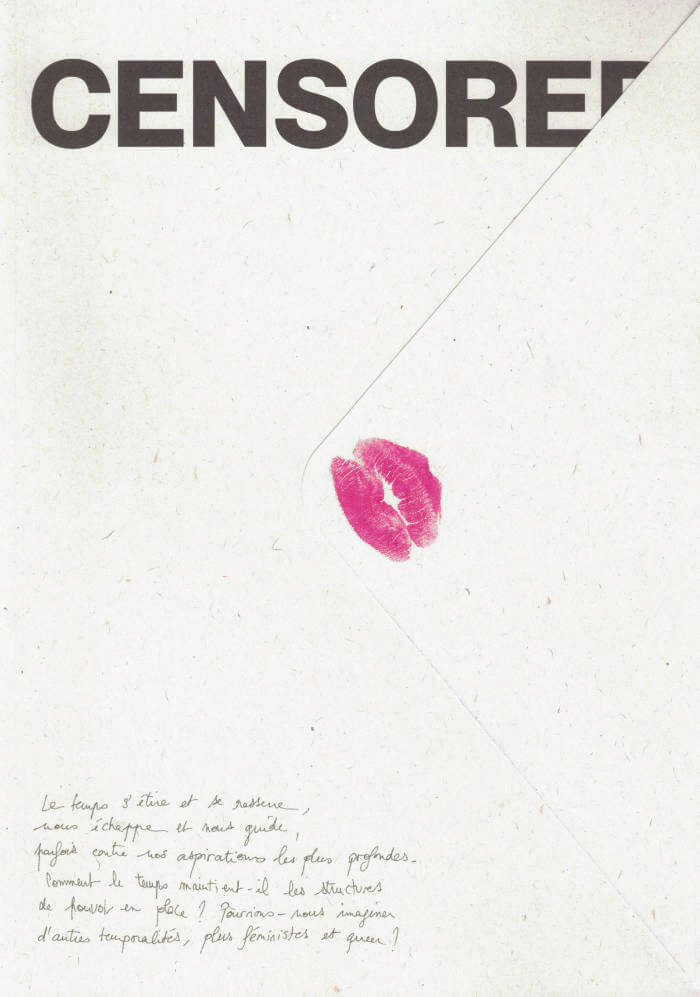
CENSORED 09 - It's About Time!
"Vous rappelez-vous de la dernière fois où vous vous êtes ennuyé·e ? Comment le temps maintient-il les structures du pouvoir en place ? Pourquoi la génération “working girl” ne fait-elle plus rêver ? Pourrions-nous imaginer d’autres temporalités, plus féministes et queer ? Dans son numéro “IT’S ABOUT TIME!” sous forme d’enveloppe géante, la revue Censored examine le concept du temps d’un point de vue féministe. Elle explore la manière dont le rythme de la vie est régi par des exigences sociales normées en abordant notre relation au travail, à la maternité, à la lutte et à la notion de liberté."
À travers des dialogues entre différentes époques, il explore des thèmes tels que la performance, les amitiés créatives et le repos et le divertissement. L’édition inclut des archives, dont un entretien entre Angela Davis et Toni Morrison, des lettres de plusieurs auteurices et poét-esses contemporain·es, des analyses, séries de photos ainsi que cinq cartes blanches à des artistes.

Worms #5 'Impurity'
In this issue, Worms explores New Narrative alongside writers working today that incorporate some of it’s themes. The cover star Saidiya Hartman talks with Rhea Dillon about the limits and processes of creating stories from the archive, while Camille Roy and Dodie Bellamy give insight into New Narrative from their experiences involved in the movement. Savannah Knoop tells about their life playing the character of J.T Leroy, while Calla Henkel delves into ideas of using other people’s narratives as our own. There’s lots of gleaning, lots of stealing and lots of hard truths coming from the human body. There is poetry and fiction and all of the usual bits, as well as an experimental cut up piece demonstrating the appropriation method that Kathy Acker (via William Burroughs) used in so much of her work. Many more worms to be found in these pages.
Featuring:
Saidiya Hartman, Camille Roy, Dodie Bellamy, Lynne Tillman, Estelle Hoy, Rhea Dillon, Savannah Knoop, Lauren Fournier, Madelyne Beckles, Joanna Walsh, Anne Turyn, Cristina Morales, Calla Henkel, Jenny Zhang
Contributors:
ZARA JOAN MILLER, HAYDEE TOUITOU, NICOLE DELLA COSTA, CECILIA PAVON, VALENTINA VON KLENCKE, FEYI ADEGBITE, ALICE PLATTI, VICTORIA CAMPA, ALICE BUTLER, CLEMMIE BACHE, CAITLIN MCLOUGHLIN, JACK STUART MILLS, HONOR WEATHERALL, ARCADIA MOLINAS, AIMEE BALLINGER, WES KNOWLER, ELEANOR WANG, KATY DADACZ, OLIVE COURI, RACHEL CATTLE, ISABELLE BUCKLOW, SARAH BODRI, HOPE ROAFL, MAURA SAPPILO, JODIE HILL, JACQUELINE ENNIS COLE, MARY WATT, DELIA RAINEY.

What happens between the knots?
Anthony Huberman, Jeanne Gerrity
The third volume of the Wattis Institute's annual reader is informed by themes found in the work of Cecilia Vicuña, including ecofeminism, indigenous forms of knowledge, poetry and politics, dissolution and extinction, exile, dematerialization, regeneration, and environmental responsibility.
The Wattis Institute's annual reader, A Series of Open Questions, provides an edited selection of perspectives, images, and references related to the Wattis's year-long "On our mind" research seasons. Each volume includes newly commissioned writing by members of the research season's core reading group, as well as text and visual contributions by a diverse range of other artists and writers. The title of each reader takes the form of a question and becomes, as new books are published, a gradually evolving series of open questions.
Contributions by Gloria Anzaldua, Elvira Espejo Ajca, Erika Balsom, María Berrios, Marisol de la Cadena, Lynne Cooke, Miho Dohi, Ricki Dwyer, Silvia Federici, Tonya Foster, Phillip Greenlief, Sheroanawe Hakihiiwe, Brian Karl, Dionne Lee, Zoe Leonard, Rosemary Mayer, Koyoltzintli Miranda-Rivadeneira, Denise Newman, Thao Nguyen Phan, Frances Richard, Dylan Robinson, Abel Rodriguez, Oscar Santillan, Alessandra Troncone, Anna Lowenhaupt Tsing, Ignacio Valero, Cathrine Veikos, Cecilia Vicuña, Diego Villalobos, Jacopo Crivelli Visconti, Carla Zaccagnini.

Spit Temple
The first overview of the work of this seminal multi-disciplinary artist, Spit Temple collects texts and transcriptions of Vicuna's uncategorizable improvised performances, which combine singing, movement, chants, and stories. Also included are a critical introduction by Rosa Alcala, a poetic memoir by Vicuna (translated by Alcala) addressing her life in performance, and a series of response pieces from contemporary writers including Juliana Spahr, Rodrigo Toscano, and Maria Damon.
Cecilia Vicuña is a Chilean poet, artist and filmmaker. The author of twenty poetry books published in Europe, Latin America and the U.S., she performs and exhibits her work widely. A precursor of conceptual, impermanent art and the improvisatory oral performance, her work deals with the interactions between language, earth and textiles. Her recent books are SPIT TEMPLE: THE SELECTED PERFORMANCES OF CECILIA VICUÑA (Ugly Duckling Presse, 2012), Chanccani Quipu, a new artist book forthcoming by Granary Books, and SABORAMI (ChainLinks, 2011). She co-edited The Oxford Book of Latin American Poetry (2009). Since 1980 she divides her time between Chile and New York.
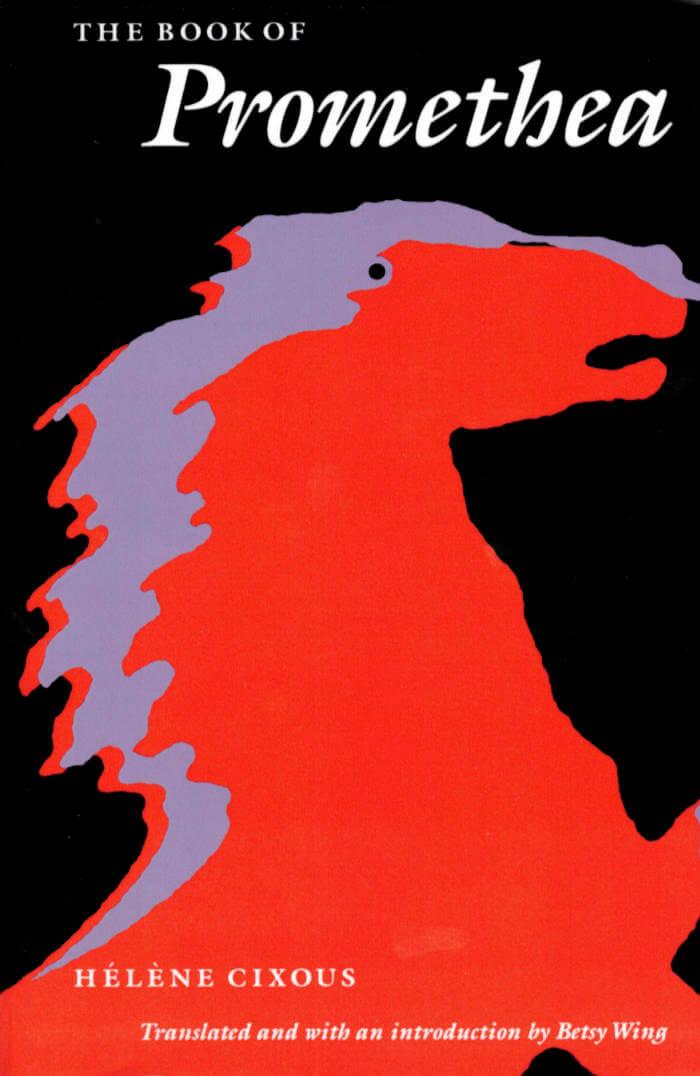
The Book of Promethea
In writing Le Livre de Promethea Hélène Cixous set for herself the task of bridging the immeasurable distance between love and language. She describes a love between two women in its totality, experienced as both a physical presence and a sense of infinity.
The result is a stunning example of écriture feminine that won kudos when published in France in 1983. Its translation into English by Betsy Wing will extend the influence of a writer already famous for her novels and contributions to feminist theory. In her introduction Betsy Wing notes the contemporary emphasis on "fictions of presence." Cixous, in The Book of Promethea, works to "repair the separation between fiction and presence, trying to chronicle a very-present love without destroying it in the writing."
Betsy Wing is a freelance translator and fiction writer. She translated Catherine Clément and Hélène Cixous's La Jeune Née (The Newly Born Woman) into English in 1986. A collection of her fiction, Look Out for Hydrophobia, was published in 1990. Hélène Cixous is also author of the play The Terrible but Unfinished Story of Norodom Sihanouk, King of Cambodia, translated by Juliet Flower MacCannell, Judith Pike, and Lollie Groth (Nebraska 1994).
Hélène Cixous is also author of the play The Terrible but Unfinished Story of Norodom Sihanouk, King of Cambodia, translated by Juliet Flower MacCannell, Judith Pike, and Lollie Groth (Nebraska 1994). Betsy Wing is a freelance translator and fiction writer. She translated Catherine Clément and Hélène Cixous's La Jeune Née ( The Newly Born Woman) into English in 1986. A collection of her fiction, Look Out for Hydrophobia, was published in 1990.
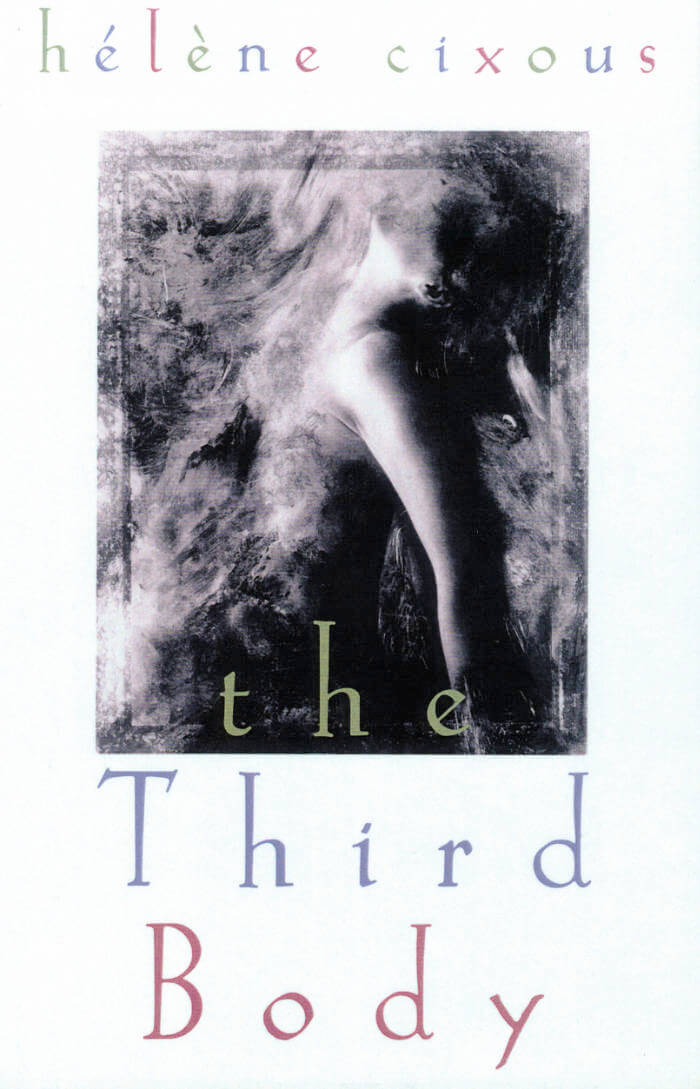
The Third Body
In The Third Body, the poet, novelist, feminist critic, and theorist Hélène Cixous interweaves a loose narrative line with anecdotes, autobiography, lyricism, myth, dream, fantasy, philosophical insights, and intertextual citations of and conversations with other authors and thinkers. Cixous evokes the relationship of the female narrator and her lover, a relationship of alternating presences and absences, separations and rejoinings. This relationship assumes protean forms within a complex web of writing, creating a third body out of the entwined bodies of the narrator and her lover.
Hélène Cixous is a professor emerita of literature and founder of the Centre d'études feminines, Paris VIII. Her numerous books include Stigmata, Three Steps on the Ladder of Writing, The Newly Born Woman, The Laugh of the Medusa, and Manhattan: Letters from Prehistory. In 2000, a collection in Cixous' name was created at the Bibliothèque nationale de France.

Up Your Ass
Valerie Solanas's rarely published, legendary play, Up Your Ass, explodes social and sexual mores and the hypocritical, patriarchal culture that produces them through her signature irreverence and wit, incisiveness and camp.
The play, whose full title is Up Your Ass Or From the Cradle to the Boat Or The Big Suck Or Up from the Slime, marches out a cast of screwy stereotypes: the unknowing john, the frothy career girl, the boring male narcissist, two catty drag queens, the sex-depraved housewife, and a pair of racialized pickup artists, among others. At the center is protagonist Bongi Perez—a thinly veiled Solanas—a sardonic, gender-bending hustler who escorts us through the back alleys of her street life. The fictionalized predecessor to SCUM Manifesto, the play shares the same grand, subversive, implicative language, equally spitting and winking, embracing the margins, the scum, and selling a trick along the way.
Valerie Solanas (1936-1988) is an American radical feminist intellectual, known for her SCUM Manifesto—a pamphlet with which she declares the power of women and imagines a political future through the margin—, and for having tried to assassinate Andy Warhol.
Edited by Leah Whitman-Salkin.
With a contribution by Paul B. Preciado.
Graphic design: Roxanne Maillet.

DAISYWORLD MAGAZINE #4
CONTRIBUTORS Anna Bierler, India Boxall, Craig P Burrows, Alex Hampshire, Kayla Adara Lee, Marijn van der Leeuw, Melanie Matthieu, Gabriella T Moreno, Amira Prescott, Harrison Pickering, Astarte Posch, Ananda Serné, Zazie Stevens, Gedvile Tamosiunaite, Mia You.
cover image Ananda Serné & Poyen Wang
DAISYWORLD MAGAZINE is a seasonal art publication on perception, the sensory, the non-human, ecology & erotica with an emphasis on interconnectedness. The artist's intimate knowledge based on observation, questioning anthropocentrism through beauty & language. Reflecting on the past season while softly moving into the next, each issue launches in-between seasons; appreciating experience, transition, and metamorphosis instead of anticipating the next big thing.

Mauve Desert
First published in 1987, Nicole Brossard's classic novel returns to Coach House in a new edition. A seminal text in Canadian and feminist literature, Mauve Desert is a must-read for readers and writers alike.
This is both a single novel and three separate novels in one. In the first, Mauve Desert, fifteen-year-old Mélanie drives across the Arizona desert in a white Meteor chasing fear and desire, cutting loose from her mother and her mother's lover, Lorna, in their roadside Mauve Motel. In the second book, Maudes Laures reads Mauve Desert, becomes obsessed with it, and embarks on an extraordinary quest for its mysterious author, characters and meaning. The third book - Mauve, the horizon - is Laures's eventual translation of Mauve Desert. Like all good translations, it is both the same and revealingly different from the original.
Nicole Brossard's writing is agile and inventive; from moment to moment gripping, exhilarating and erotic. Her language drifts and swells like sand dunes in a desert, cresting and accumulating into a landscape that shifts like wind and words; she translates the practice of translation, the pulse of desire.
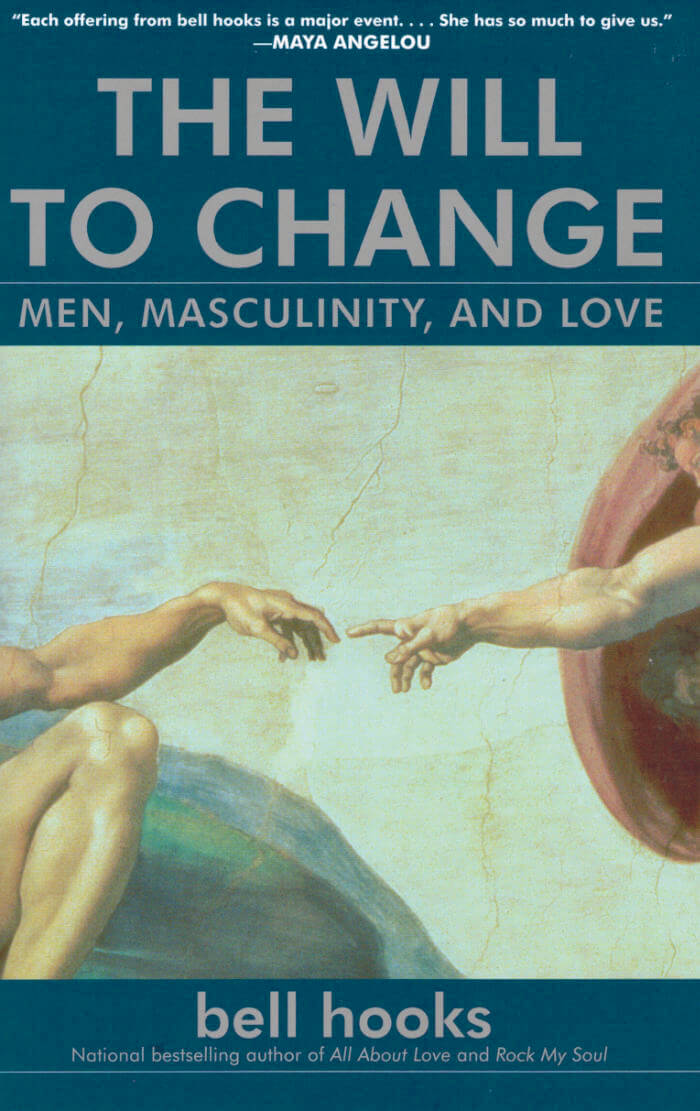
The Will to Change
Everyone needs to love and be loved — even men. But to know love, men must be able to look at the ways that patriarchal culture keeps them from knowing themselves, from being in touch with their feelings, from loving. In The Will to Change, bell hooks gets to the heart of the matter and shows men how to express the emotions that are a fundamental part of who they are — whatever their age, marital status, ethnicity, or sexual orientation. With trademark candor and fierce intelligence, hooks addresses the most common concerns of men, such as fear of intimacy and loss of their patriarchal place in society, in new and challenging ways. She believes men can find the way to spiritual unity by getting back in touch with the emotionally open part of themselves — and lay claim to the rich and rewarding inner lives that have historically been the exclusive province of women. A brave and astonishing work, The Will to Change is designed to help men reclaim the best part of themselves.
bell hooks was a cultural critic, a feminist theorist, and the renowned author of more than twenty books, including Rock My Soul, The Will to Change, Sisters of the Yam, and When Angels Speak of Love. A charismatic speaker, she divided her time between teaching, writing, and lecturing around the world. A resident of Kentucky and New York City, she passed away in 2021.
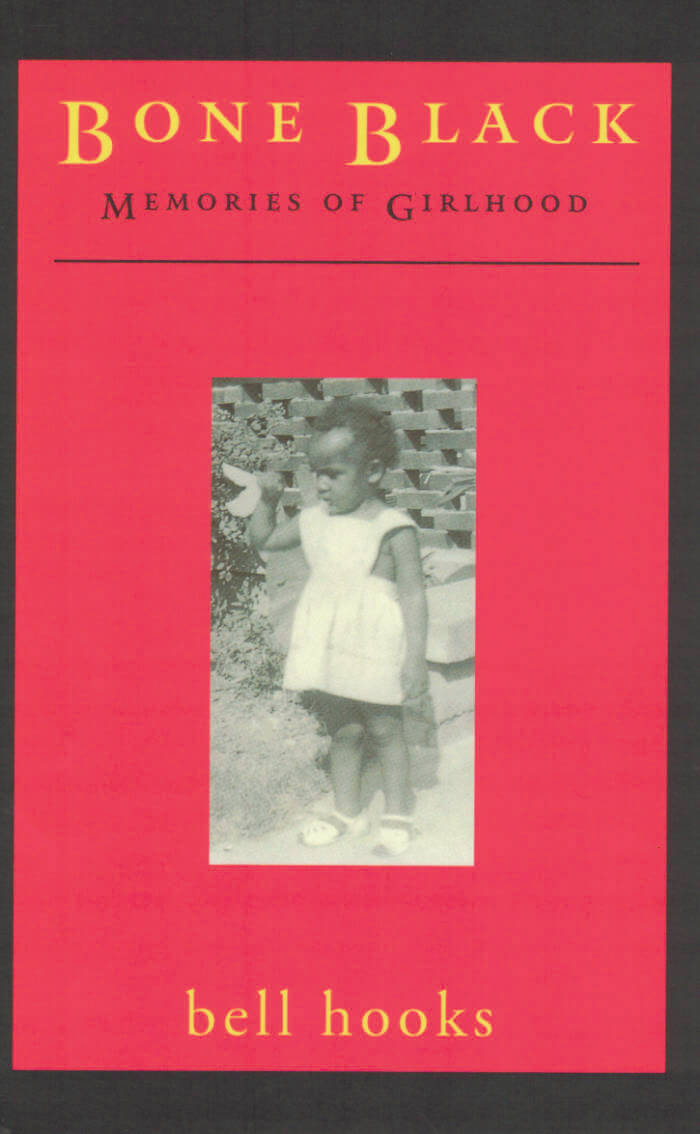
Bone Black Memories of Childhood
Stitching together girlhood memories with the finest threads of innocence, feminist intellectual bell hooks presents a powerfully intimate account of growing up in the South.
"With the emotion of poetry, the narrative of a novel, and the truth of experience, bell hooks weaves a girlhood memoir you won't be able to put down—or forget. Bone Black takes us into the cave of self-creation."— Gloria Steinem
A memoir of ideas and perceptions, Bone Black: Memories of Girlhood shows the unfolding of female creativity and one strong-spirited child's journey toward becoming a writer. She learns early on the roles women and men play in society, as well as the emotional vulnerability of children. She sheds new light on a society that beholds the joys of marriage for men and condemns anything more than silence for women. In this world, too, black is a woman's color—worn when earned—daughters and daddies are strangers under the same roof, and crying children are often given something to cry about. hooks finds comfort in solitude, good company in books. She also discovers, in the motionless body of misunderstanding, that writing is her most vital breath.
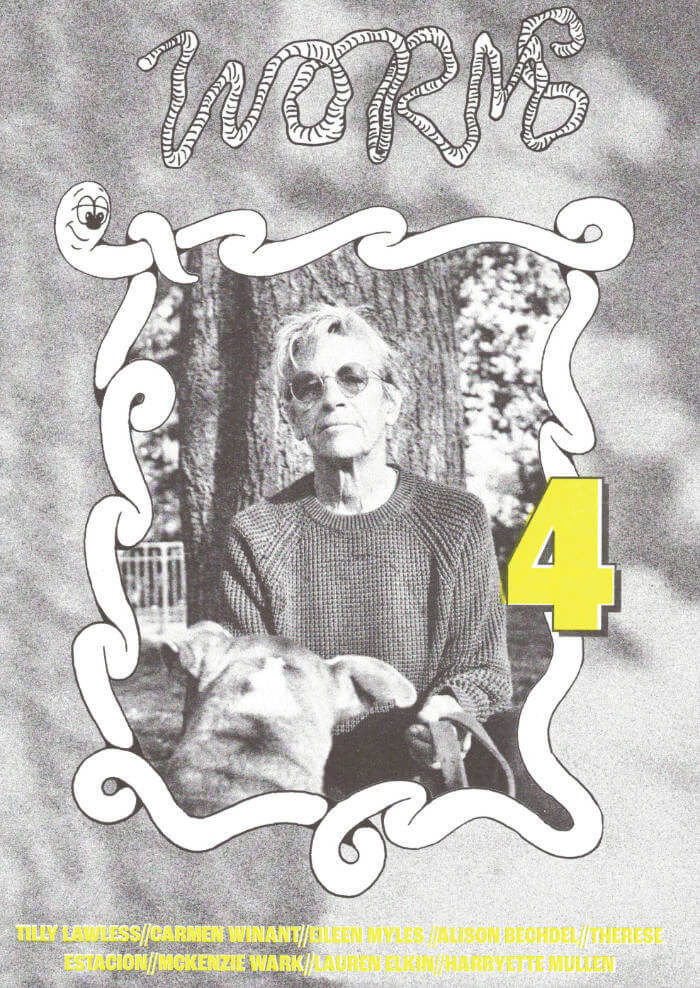
Worms #4 'The Flaneuse'
Worms #4 looks at psychogeography and the Situationists from a non-male perspective. Taking flâneuserie and the creative benefits of a good walk as its starting point, the issue features conversations with Eileen Myles, Alison Bechdel, Lauren Elkin, Tilly Lawless, Mckenzie Wark, Therese Estacion and Carmen Winant. 2021 was a fraught year for walking; the pandemic restricted our right to movement, while the murders of women walking in London led us to ask the question: how can the act of walking the streets spark political conversation?
Also included with this issue is an affirmation booklet in collaboration with @somuchluvindisclub
Worms is a biannual literary style magazine that celebrates female and non-binary writer culture.
‘If you’re reading this, you are a worm. We’re all worms, and in the end, we’re going to be eaten by them. As a (book)worm, you will fertilize your mind with glorious words…’
Founded in 2019 by Clem Macleod during her degree at Central Saint Martins, Worms began with a mad, spiralling obsession with the late Kathy Acker.